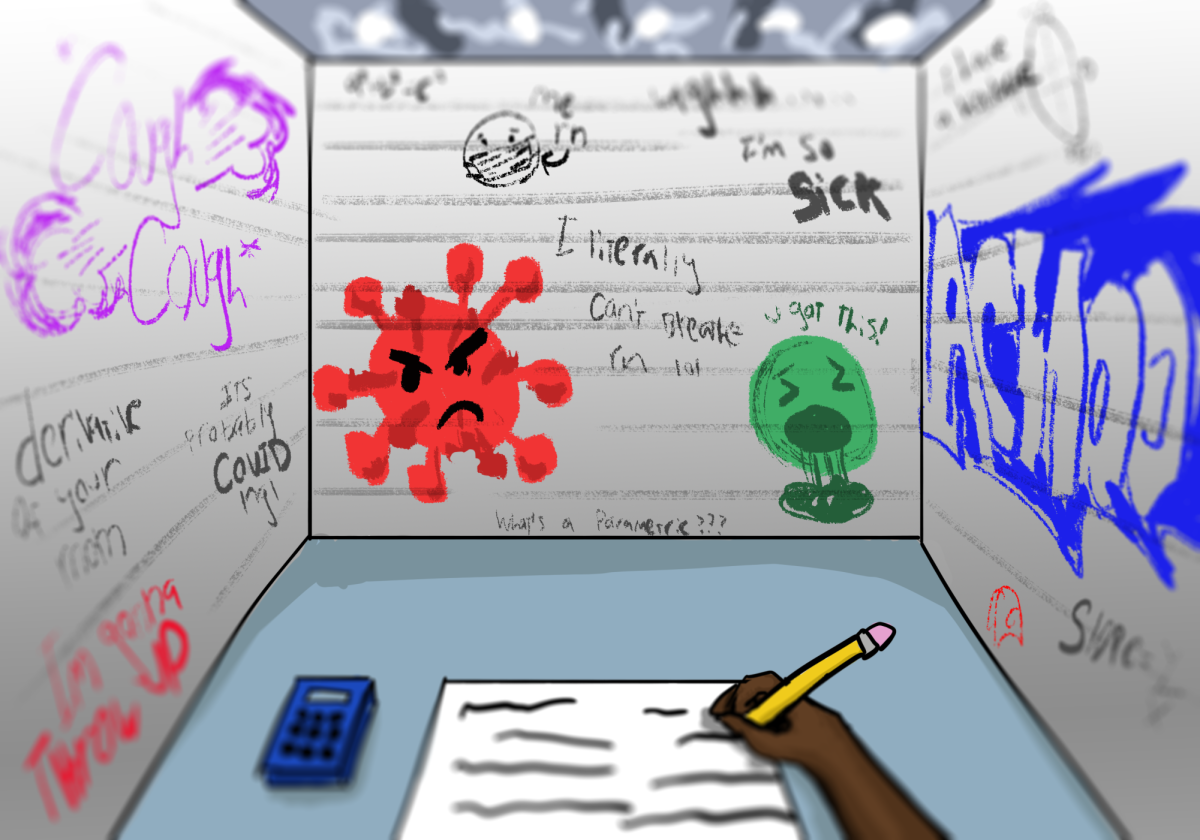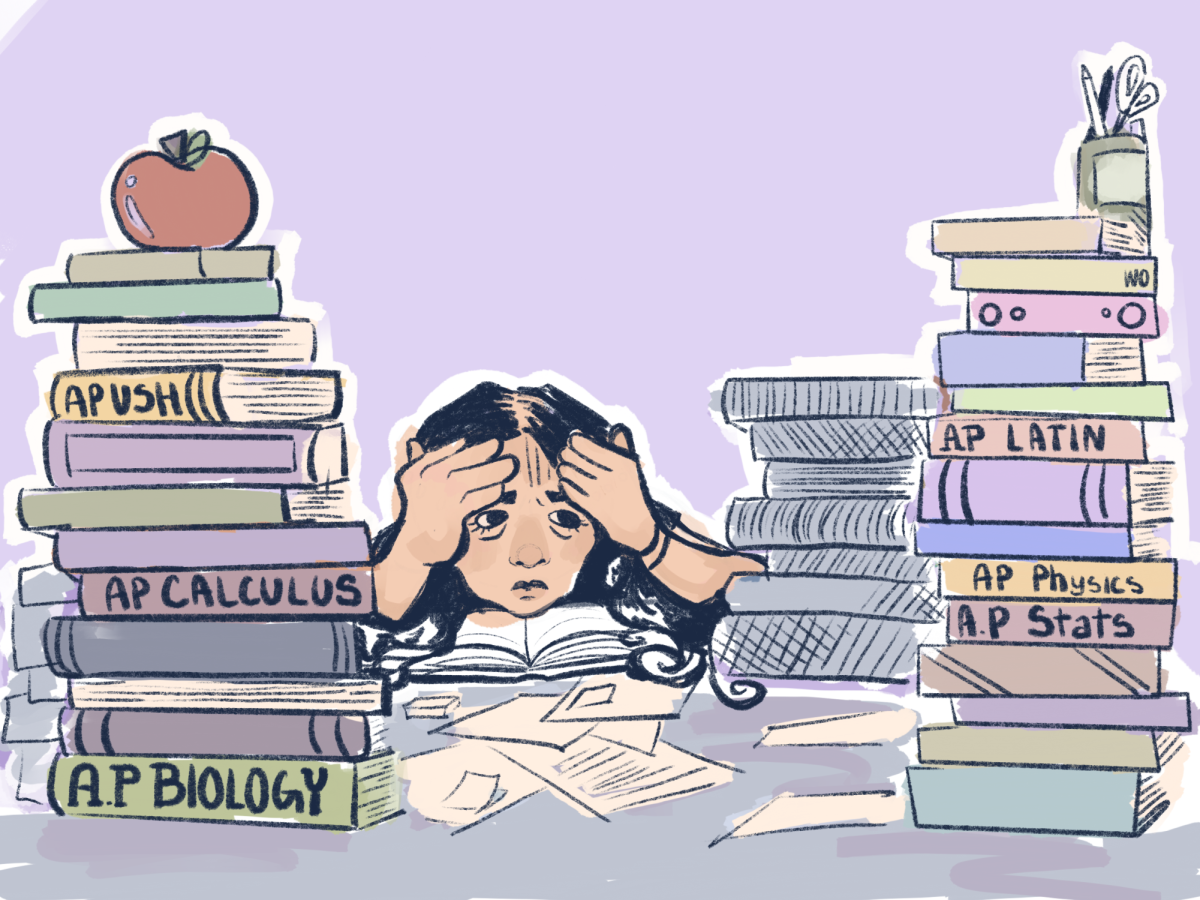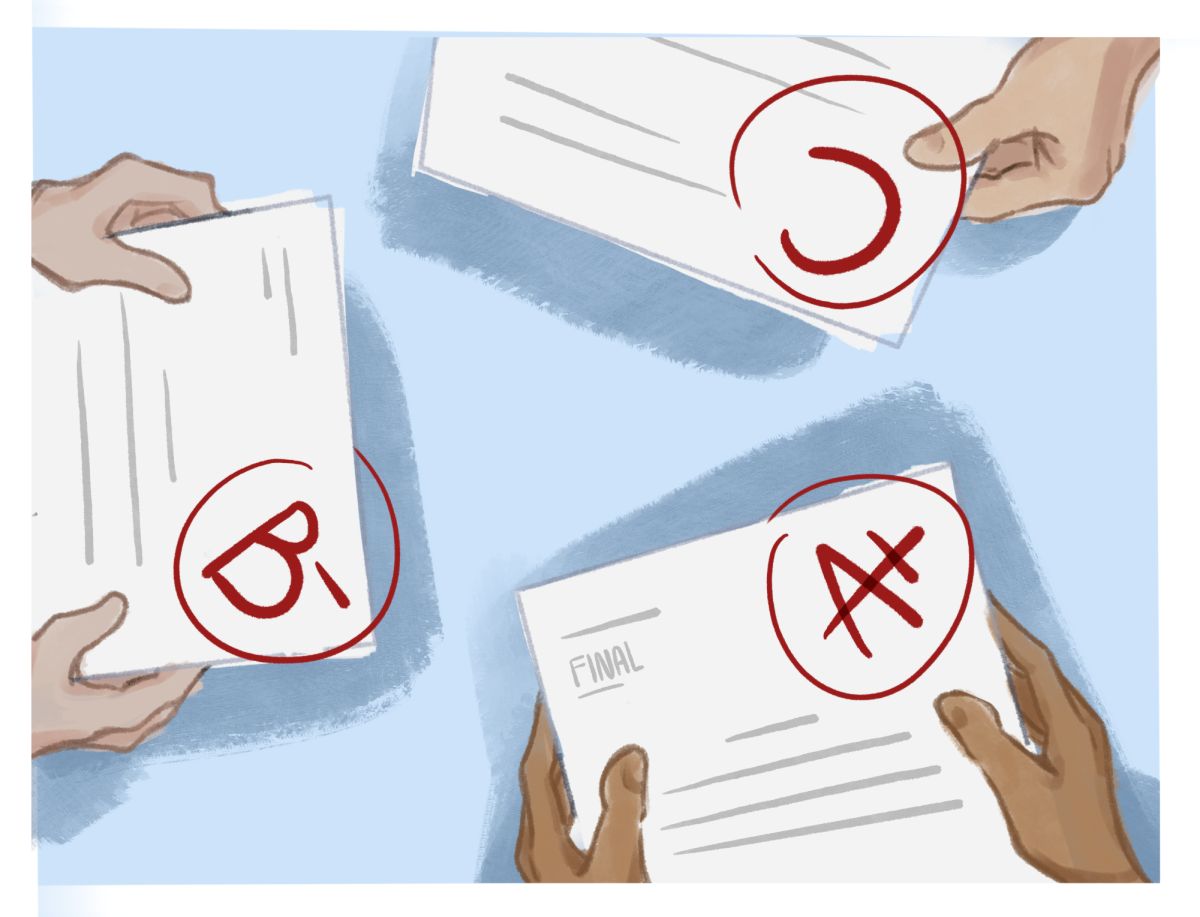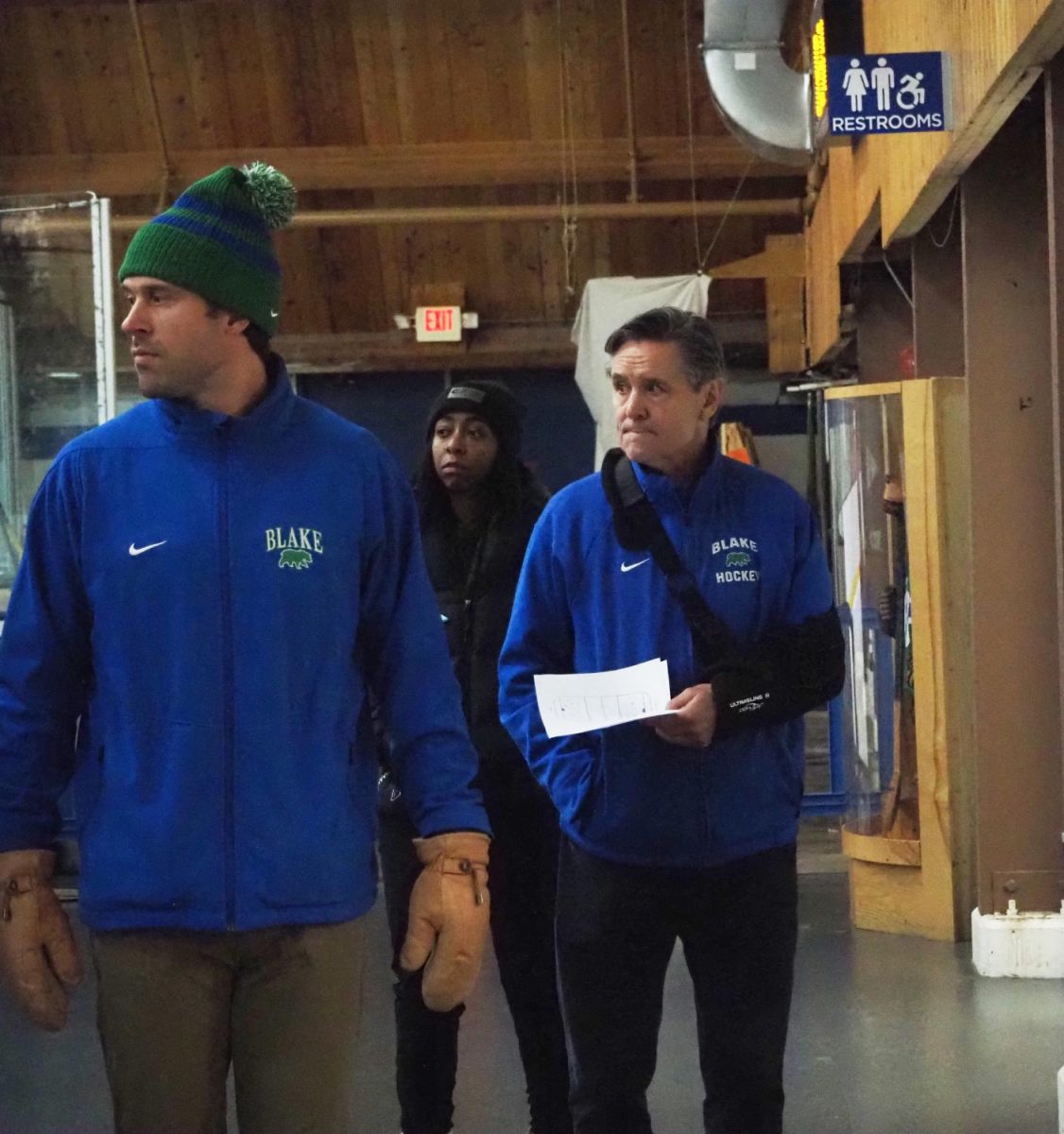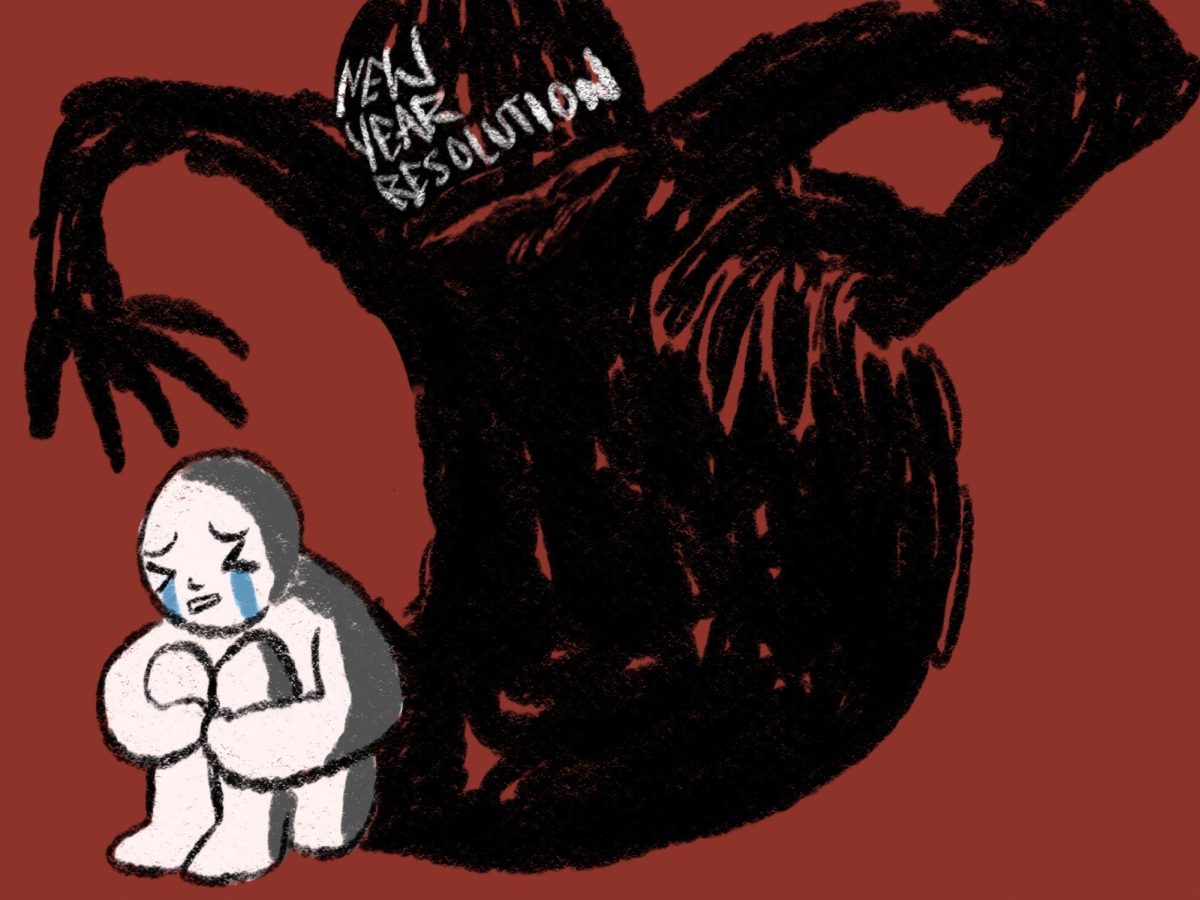Have you ever found yourself crammed in a tight, sweaty math classroom with no air conditioning when four people at your table start violently hacking in your face? Chances are, you have.
Sickness at the Upper School spreads faster than wildfire, but the desperation to not miss school can sometimes be more intense than the sickness itself. Why is there so much determination to go to school, even when you are still very sick? It is an issue embedded within the Upper School’s culture, and it needs to change.
Last year, I was sick with COVID-19, pneumonia, the flu, and two unknown respiratory illnesses back to back. And every time I dragged my body into the building, barely awake, simply because I was afraid of falling behind.
“I knew how much work I was missing and I knew how many tests I was missing,” says Payton Smith ‘24, who missed a week of school this year due to pneumonia. “I made the decision to come back for the sake of my education because, obviously, college applications [were] due soon and Quarter 1 grades count.”
Overworking yourself will only make things worse. Smith says, “I definitely think I should have taken more time off of school because even when I came back, I was still in pretty rough shape… I ended up getting pneumonia because I wasn’t taking care of myself in the first place.”
But this issue goes deeper than just in school; it is equally prevalent in sports. The Minnesota State High School League (MSHSL) requirement for sports is that one must be at school to practice or play in a game, but sometimes, this requirement worsens the pressure for students to come back.
“With sports… there was definitely a lot of external pressure for me to come back to soccer and especially when I was coming to school and was still not healthy and had to sit out according to my doctor, who told me I can’t play, but people were still like ‘Hey, it would be nice to have you on the field,’” says Smith. “I was at school because my mental health couldn’t handle the missing of assignments and tests even though my physical health was still in the gutter.”
Our school is intense. It’s just a fact of the matter, but as a community we must create a new culture where health, both physical and mental, is prioritized over missing assignments and sports games.


